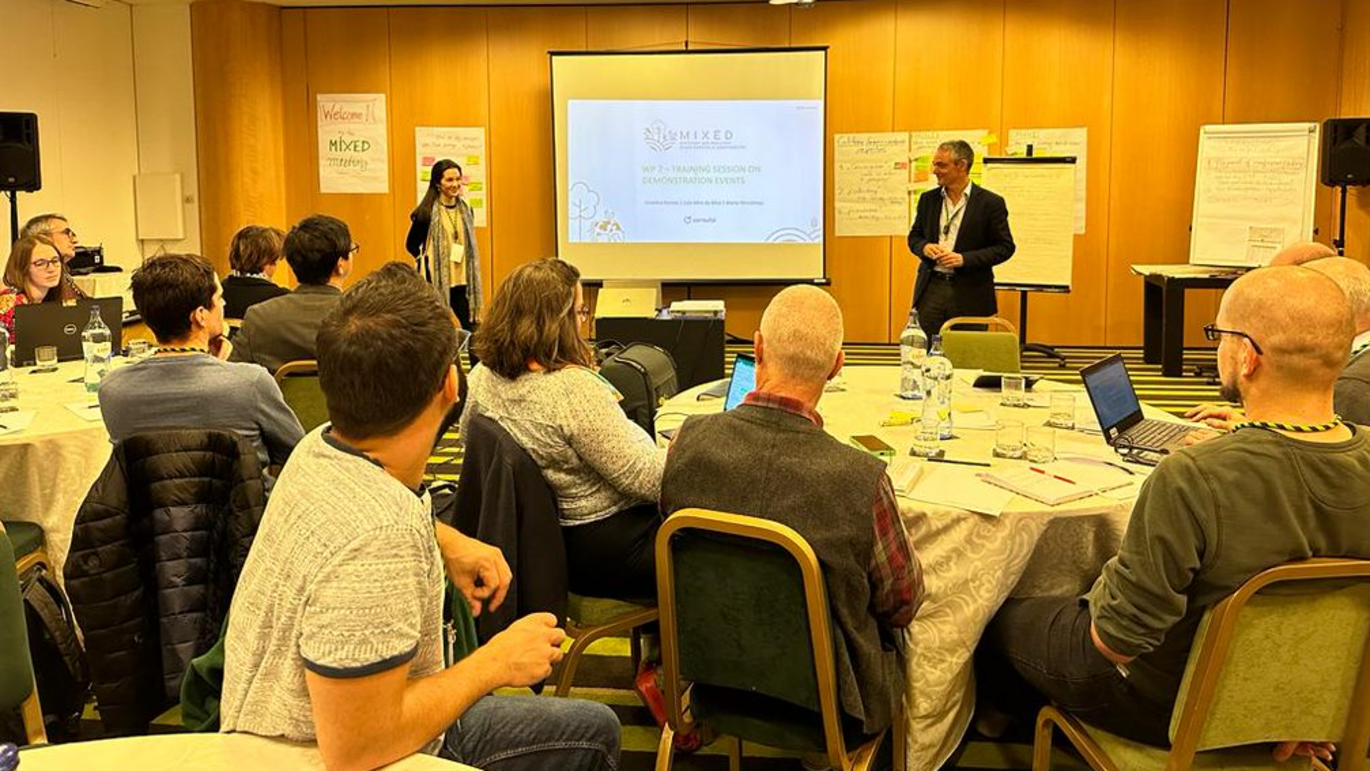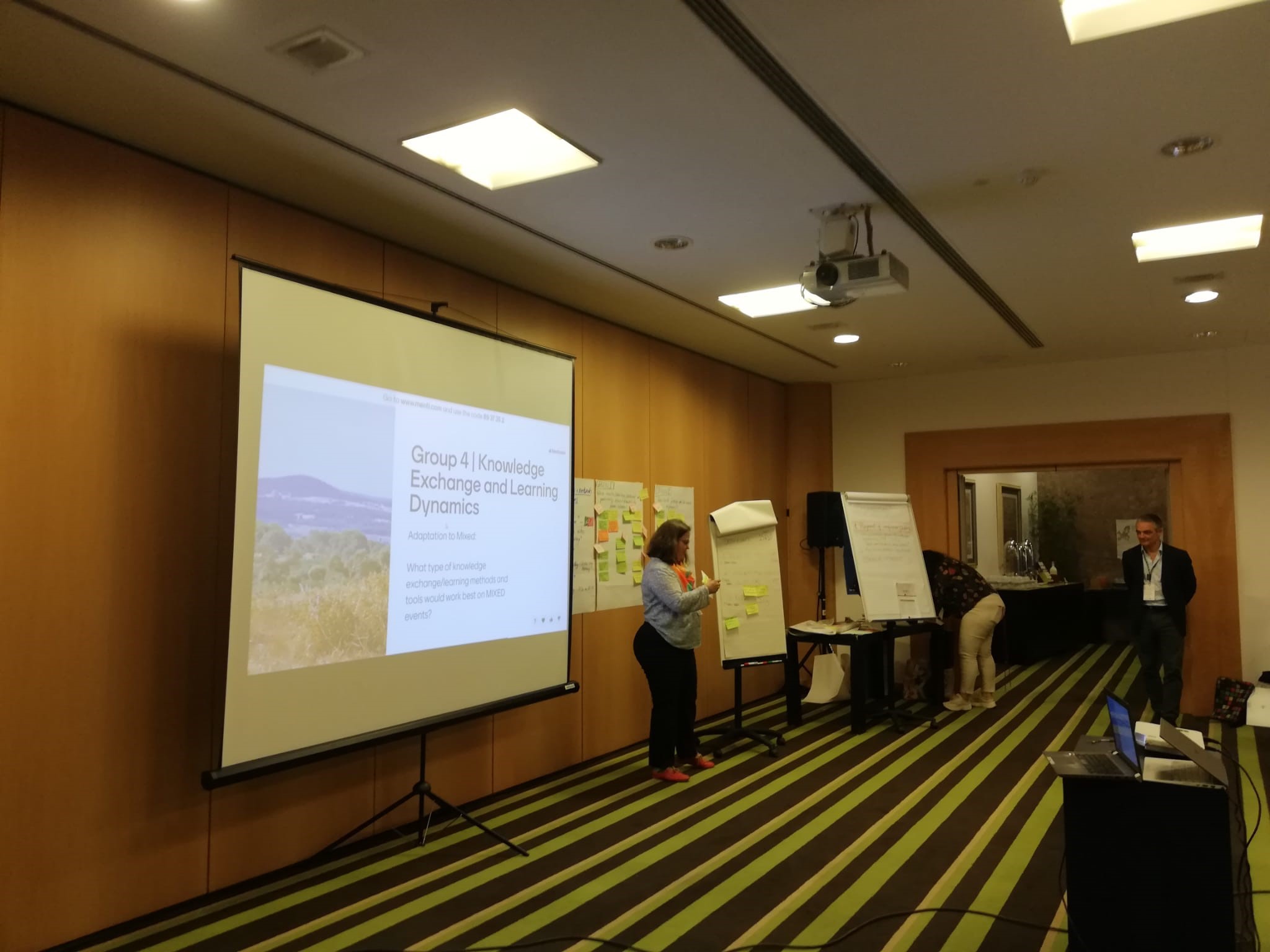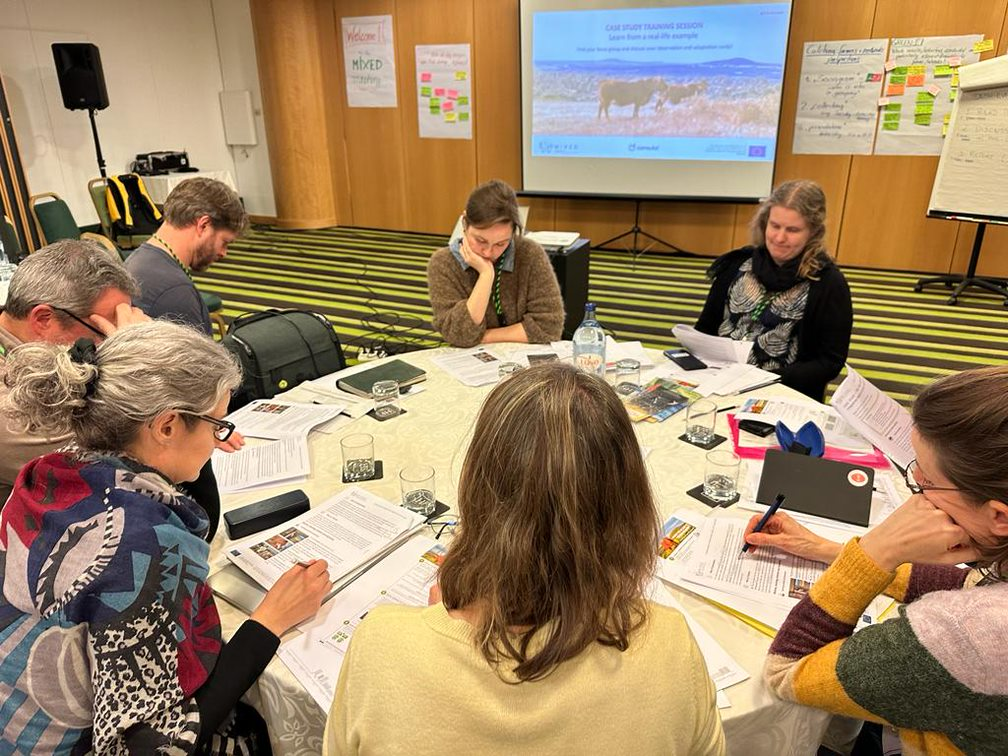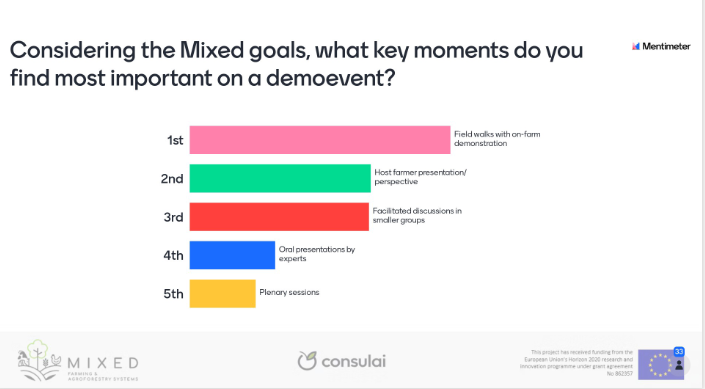The basic concepts of 'Demonstration events' in the agricultural sector
Demonstration events have gain importance in the agricultural sector and can be seen as an opportunity for farmers – and other AKIS actors – to learn in a real-life perspective as well as exchanging views and knowledge among each other.




In 2023 and 2024 each MIXED network has to plan and organize 2 demo events to discuss applied technologies and results and, more importantly, the key message should be clear: innovative mixed systems can be implemented.
Demo events have different goals, opportunities and planning structure than regular field days or other events, and it is important to be aware of those differences when designing a demo. Therefore, in September, MIXED had a theoretical workshop with the goal of introducing the basic concepts of demo events.
Last month, on the annual meeting in Lisbon, to remind basic concepts and introduce new ones, CONSULAI gave a more practical training session on demo events, to ensure all partners could understand how to organize and design a successful demo event in MIXED, using the hub structure developed by NEFERTITI, an EU project that has established a farm demonstration network of 45 hubs across Europe. CONSULAI was using its experience from being a partner in NEFERTITI project as well as tools based on the NEFERTITI project to encourage the partners to organize a successful demo event in the MIXED project.
"By using Mentimeter, we managed to have an interactive initial presentation that allowed us to get partners inputs and perspectives – from their experience in demos to their opinion about demo events in Mixed. One of the most interesting insights was the opinion about the goal of a demonstration event: several partners mentioned knowledge exchange, discussing results and information, sharing success stories and good practices, but other interesting answers were inspire, increase innovation, raise interest for farmers, trust and engagement. This clearly distinguishes a demo event from other events, since one of its priorities should be to inspire and engage farmers, while also seeking to understand their perspective", says Luis Mira da Silva, Manager at CONSULAI.
On the second part of the training, CONSULAI used the case study method as a practical approach to engage participants and have them evaluate a real example of a demo. The case study described an Integrated Pest Management (IPM) Works’ demo event organized in a horticulture farm in one of the Portuguese hubs. Characteristics such as local context, the IPM Works project, topics covered in the demo, the target group, etc. were covered in the description of the case study. After participants read about it, six focus groups discussed different topics in two different approaches:
- Observing the IPM Works’ demo event: How would we evaluate this demo event?
- Adapting to MIXED: What would we do in the MIXED project?
In the end of the training session each group had three minutes to present their conclusions to everyone. The main conclusions presented were:
Group 1 | Local context
- Choose an exemplary demo farm and interested target groups, taking into consideration these groups can adapt what they’ve seen to their context.
- Choose relevant production systems in the region.
Group 2 | Demo topic and host farmer
The demo topic focused on sustainability issues of the region that were relevant to the horticultural sector:
- Reducing the use of pesticides
- Increasing biodiversity on a farm scale
- Reach a new farm equilibrium
What are the main characteristics that a host farmer should have?
- Informed in the topic
- Inspirational (an advocate of the technology/technique) and open-minded
- Innovative and adaptable.
Group 3 | Target groups
- Farmers should have been separated by farm-scale so that the event could be better addressed to them.
- Inviting commercial partners such as KOPPERT is risky. The invitation regarding experts in the technology/innovation demonstrated should be to independent actors.
- Policymakers could have been invited.
The main barrier to farmer’s engagement is irrelevant content and uninterested farmers: Knowledge of what farmers are interested in is crucial to a successful demo event. The focus group also advised avoiding the use of PowerPoint in these meetings. The time of year should prioritize the farmers and not the project itself.
Group 4 | Knowledge exchange and learning dynamics
Lack of knowing the participants, particularly the reason for attendance in the event leads to a less relevant event (from the participants perspective). Moreover, in this demo event, the technology was only relevant for a group of farmers.
Active discussion and knowledge exchange between farmers can be promoted through short group conversations.
Group 5 | Anchoring the participants in the event
- Design follow-up activities during the event
- Invite the right people.
- Identify farmers’ needs (first-hand)
- Deliver what you promised.
Group 6 | Scalling-up to the wider farmer community
What kind of scalling-up strategy for demo events would impact other actors beyond the participants of the event?
- Training session and workshops (field days, stakeholder workshops)
- Adapting to other crops/production systems whenever possible.
- Good practices with cross visits and other events
- Dissemination material, reports, policy briefs with the results and first impact of the events.
Luis concludes that it was a good training session to start thinking about what each partner should do and organize in their own networks.
